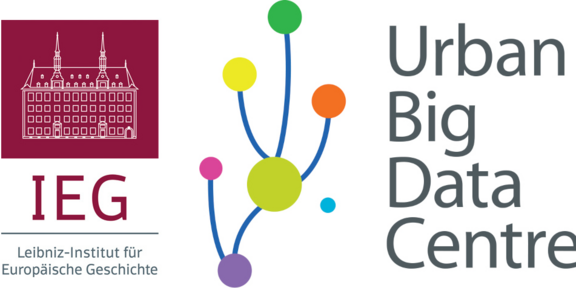Invited talks in Glasgow and Mainz

Our lab head Dr René Westerholt discussed the genesis and curation of geographical knowledge in a talk at the conference "Wissen ordnen und entgrenzen" of the Leibniz Institute of European History in Mainz. The presentation placed a special focus on space concepts in the course of the ongoing digital revolution. In this context, the topic of user-generated geodata was discussed in particular, which represents a significant paradigm shift for the spatial knowledge architectures of the 21st century way beyond mere technological evolution. This lecture took place in tandem with historian Dr Monika Barget (Maastricht University), who contrasted the contemporary perspective discussed by Dr Westerholt with the perspective of the early modern period. Further information on the conference including the complete programme can be found online: https://www.hsozkult.de/event/id/event-116150.
In a second invited lecture, Dr Westerholt discussed the tension between the methodological field of statistical spatial analysis and the context of the digital era. This talk, held at the Urban Big Data Centre at the University of Glasgow, made particular reference to the multitude of novel datasets that emerge from everyday practices and have different characteristics compared to traditional scientific datasets. Examples include data from social media, blog posts with spatial location and language, and data from fitness applications. Spatial statistical methods are designed for scientific data collected according to well-defined criteria. Thus, novel problems arise when these established methods are to be applied to the aforementioned novel datasets nonetheless. In this talk, Dr Westerholt offered an overview of two of his recent papers (see references below) in addition to explaining the context of digital spatial concepts. The slides of the lecture are available online: https://www.ubdc.ac.uk/media/2366/presentation-rene-westerholt-290322.pdf.
References to the papers presented:
Westerholt, R., Lorei, H., & Höfle, B. (2020). Behavioural Effects of Spatially Structured Scoring Systems in Location-Based Serious Games—A Case Study in the Context of OpenStreetMap. ISPRS International Journal of Geo-Information, 9(2), 129. DOI: 10.3390/ijgi9020129.
Westerholt, R. (2021). Emphasising spatial structure in geosocial media data using spatial amplifier filtering. Environment and Planning B: Urban Analytics and City Science, 48(9), 2842–2861. DOI: 10.1177/2399808320987235.

